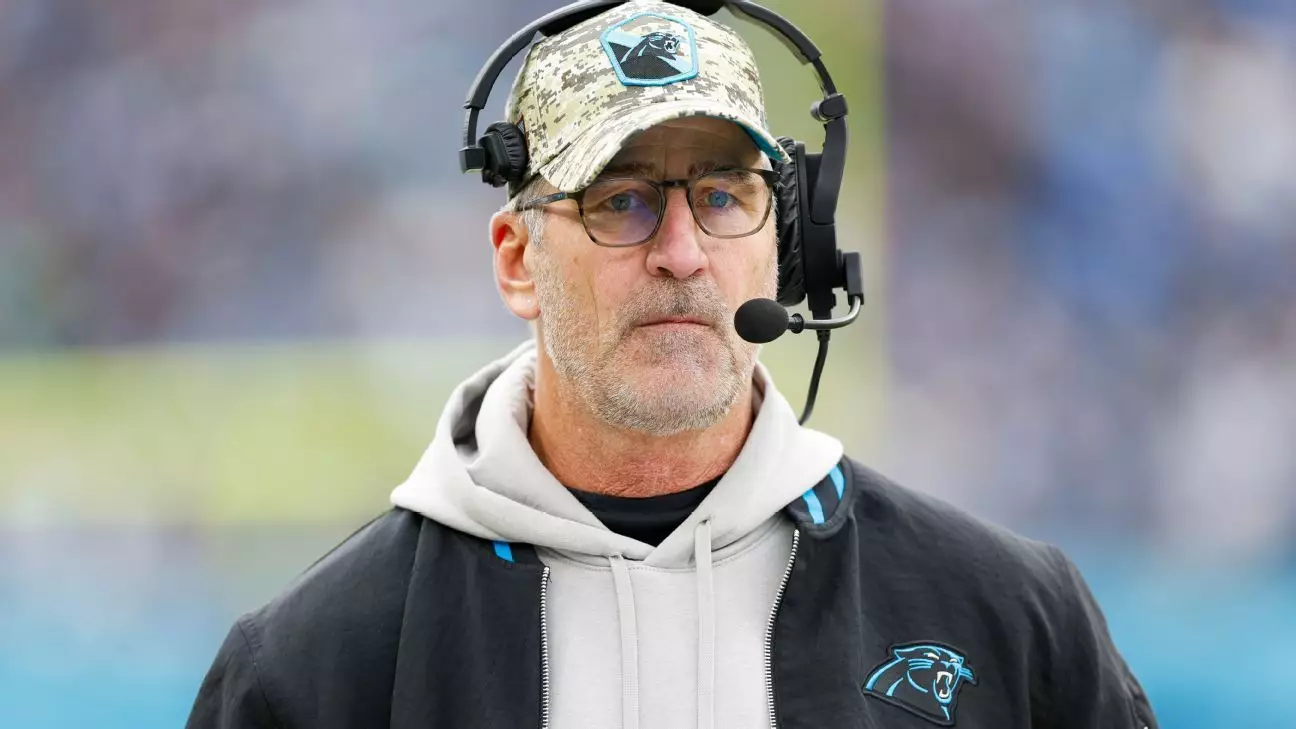In a move that can only be described as unprecedentedly bold, Stanford University has named Frank Reich as its interim football coach for the 2025 season. This hire comes in the wake of the dismal firing of Troy Taylor, who fell from grace due to allegations of bullying and inappropriate behavior towards female staff members. Enlisting Reich—a coach with a tarnished recent history—raises eyebrows and invites scrutiny. One wonders if this decision reflects an acute desperation within the athletics department, especially considering Stanford’s recent track record of mediocrity, culminating in a grim 3-9 record over the last four seasons.
It’s hard to ignore the irony of a program like Stanford, traditionally viewed as a bastion of academic excellence and integrity, opting for a figure embroiled in his own controversies. Reich, after getting the boot from two NFL teams in consecutive seasons, brings with him a patchy reputation that could easily overshadow the bright aspirations of a college football program desperately seeking revitalization.
Mentality of the Leadership
The rationality behind this appointment may stem from a misguided perception of Reich as a mentor capable of molding young athletes. Stanford’s general manager, Andrew Luck—someone who has a profound relationship with Reich—seems to be articulating a vision that marries athletics with personal development. While Luck’s faith in Reich’s leadership abilities is commendable, one must question whether a man who has struggled in managing professional-level talent can effectively navigate the complex dynamics of student-athletes at a prestigious academic institution.
Reading between the lines, Luck’s comments portray Reich as a transformational figure, yet such assertions ring hollow against the backdrop of the turmoil his coaching career has faced. Given that Stanford has not enjoyed a bowl game since 2018, one can’t help but wonder if this appointment is less about strategic foresight and more about a desperation-driven gamble to breathe life into a flailing program.
The Recklessness of Relatability
Reich’s relationship with Luck adds an unsettling layer to this narrative: it suggests that personal connections are superseding the need for objective evaluation. The notion that a shared history can somehow nullify past failures is a dangerous trajectory for any sports program, particularly one like Stanford that prides itself on values beyond the athletic field. Hiring someone so closely linked to the existing leadership signals a disconcerting bubble of insularity.
Additionally, Stanford is navigating far murkier waters than just a simple coaching appointment. With key players like David Bailey opting to enter the NCAA transfer portal and an interim athletic director stepping in, the university is in a state of transition that demands strategic decision-making rather than emotionally charged hires. The implications of these changes cannot be overstated; they pose potential roadblocks to rebuilding a culture that has felt the sting of repeated losses and a tarnished reputation.
Wider Ramifications and Reflections
The ramifications of this hiring decision extend beyond the realm of football to encompass Stanford’s broader ethos. The university, which has basked in its academic and athletic prestige, now risks damaging its reputation by perpetuating a culture that tolerates misconduct—be it through tacit complicity or reckless hiring practices. For students striving for holistic growth, both athletically and academically, this could be perceived as an abandonment of core values.
What we’re witnessing is not simply a football hire but a symptom of a larger issue in collegiate athletics—where branding can overshadow the moral imperatives of nurturing young athletes. In trying to salvage a fading football program, Stanford risks conflating excellence with mere win/loss records, thus losing sight of what should be a genuine commitment to student welfare and institutional integrity.
In embracing this gamble with Frank Reich, one must ask: are we witnessing a visionary rebirth or just another chapter of misguided ambition? As Stanford can attest, the line between success and failure in collegiate sports is often drawn in the shades of leadership integrity and accountability.


Leave a Reply